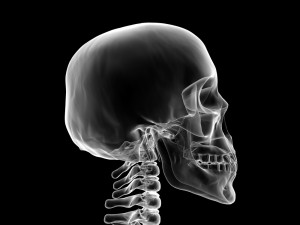 We’ve discussed TMJ disorder, or TMD, and its diverse range of effects at length in the past, including ways to find relief from jaw pain until you can treat it professionally. The varying symptoms often make TMD diagnosis difficult, but regardless of the exact pattern of discomfort, the majority of cases result from an imbalanced bite, which can strain and damage your jaw’s joints and muscles. So how does a jaw problem result in sometimes-unbearable migraines, earaches, neck and back pain, and many other forms of agony? Your Astoria dentist, Dr. Jeffrey Leibowitz, explains the complexities of TMJ disorder by taking a very close look at the mechanisms that make your mouth work and how the dysfunction affects them.
We’ve discussed TMJ disorder, or TMD, and its diverse range of effects at length in the past, including ways to find relief from jaw pain until you can treat it professionally. The varying symptoms often make TMD diagnosis difficult, but regardless of the exact pattern of discomfort, the majority of cases result from an imbalanced bite, which can strain and damage your jaw’s joints and muscles. So how does a jaw problem result in sometimes-unbearable migraines, earaches, neck and back pain, and many other forms of agony? Your Astoria dentist, Dr. Jeffrey Leibowitz, explains the complexities of TMJ disorder by taking a very close look at the mechanisms that make your mouth work and how the dysfunction affects them.
The Joints That Make it Happen
TMJ disorder owes its name to the temporomandibular joints, or TMJs, that connect your lower jaw to your skull. These joints allow your mandible (the lower, moveable part of your jaw) to glide smoothly along its socket, displacing the pressure of your bite evenly instead of concentrating it on a single area. If your jaw is imbalanced, or your bite is thrown off by malocclusion (crooked teeth), the muscles and joints have to work harder to keep your mouth straight as it opens and closes. The strain can damage the joints or cause them to become misaligned, leading to severe TMJ discomfort that can affect a wide area of your head, face, neck, shoulders, and back, as well as the proper function of your mouth.
The Nerve of Those TMJs
Your perception of pain is dictated by the nerves that are thoroughly dispersed throughout your body and feed sensory information to your brain. The nerve along your TMJs, called the trigeminal nerve, also innervates a large portion of your head and face. The strain and excessive pressure of TMJ disorder can disturb this nerve, which is the source of TMJ discomfort, and the disturbance leads to various resounding effects. Massaging your jaw, applying heat, and learning to relax can help relieve facial muscle tension and the pressure that it places on the trigeminal nerve, minimizing the pain even if only temporarily. Fixing the problem, however, may require professional treatment.
Find Relief from TMJ Disorder in Astoria
If you suffer from chronic craniofacial discomfort and believe that you have a troubled jaw, don’t hesitate to visit Dr. Leibowitz as soon as possible. To learn more about the intricacies of TMJ disorder, or how to treat the condition, or to schedule a dental consultation, contact your Astoria dentist by calling (718) 728-8320. We proudly serve patients from Astoria, Queens, Manhattan, Brooklyn, and the surrounding communities.


